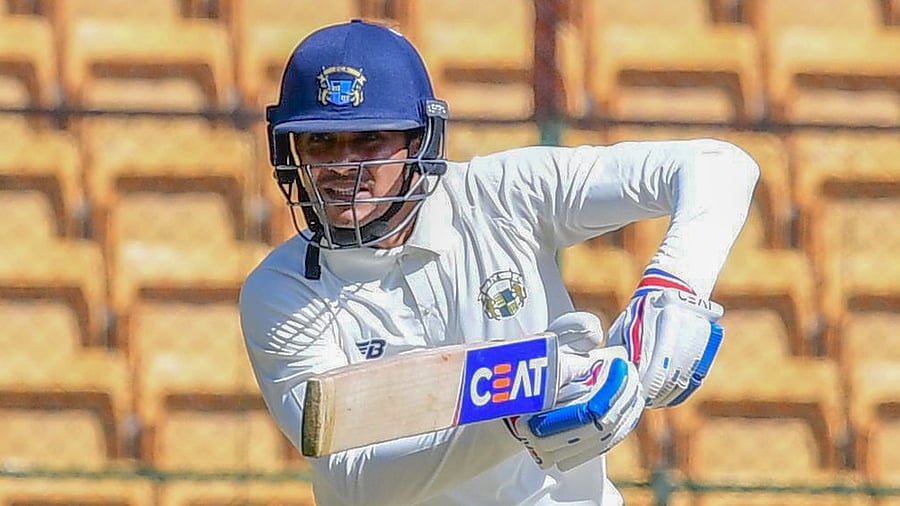
Punjab skipper Shubman Gill struck a century on Saturday.
Credit: DH Photo/ SK Dinesh
Bengaluru: Naturally, Shubman Gill was talking up the Board of Control for Cricket in India’s diktat pertaining to their mandatory presence in the domestic circuit when not donning the Indian jersey, but he didn’t hold back from revealing a concern.
The BCCI, after accounting for India’s below-par quality in red-ball cricket for a few months now, issued a dictum to players, telling them to partake in domestic duties for their respective state sides when the time allows for it.
This is why some of the biggest stars in Indian cricket, including the likes of Rohit Sharma, Rishabh Pant, Ravindra Jadeja and Gill have turned out for their domestic teams. Even Virat Kohli is expected to play for Delhi in the next round.
Gill was all praise for the stern memo, saying it helps him stay locked in and remain in touch, but insinuated that there is potential for skills to stagnate.
“Sometimes, there are certain areas in your game that you have to work on and when you are playing, it is difficult to do that (when playing domestic matches),” he said minutes after losing their Group C Ranji Trophy fixture against Karnataka here. “It is important to grow as a player in that period when you say you are resting. See, even when you say you’re ‘resting’, you’re actually not, you are also practicing, training…. When you are training, you are trying to build more muscle. When you are practicing, you are trying to work on certain areas.
“Those aspects are also very important as a player because if you keep playing, then you are not really able to work on the areas that you want to work, be it physically or mentally,” he added.
In the same breath, Gill said: “if there is a gap of 15-20 days between series, it is helpful to play a match because the match feels different, and no matter how much you practice, you won’t get this experience, at any level.”
When asked about his run Down Under, he didn’t shy away from admitting his flaws. “Sometimes, with the red ball, in the matches that I play, I get very good 25-30 runs. I think in those moments, sometimes I put too much pressure on myself to be able to score big runs. I think that is not the way that I have grown up playing my game. There is a certain zone that I am in, a certain intent that I am in and sometimes I think I lose that because I put too much pressure on myself that I have to get a big run now that I am set. I think in those crucial moments, I sometimes lose my focus and concentration.”
Onto the topic of leadership, Gill made no bones about how the role brings out the best in him.
“It is a big responsibility. It is very important to be able to not just perform as a batsman but have an all-round mindset towards the game,” he said. “It (captaincy) keeps you in the game all the time. As a person, I like to be involved in the game and with what is happening. It brings out the best in me as a player when I am constantly involved in the game.”
Frankly, it didn’t seem so during this game where his captaincy was passive and uninspiring, but it did result in his first first-class century since October last year so maybe there is some truth to it. Now to see if he can do the same for India.